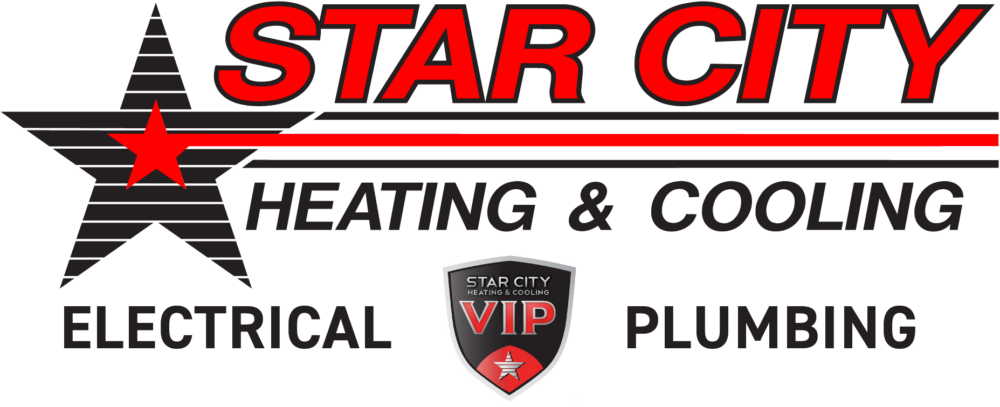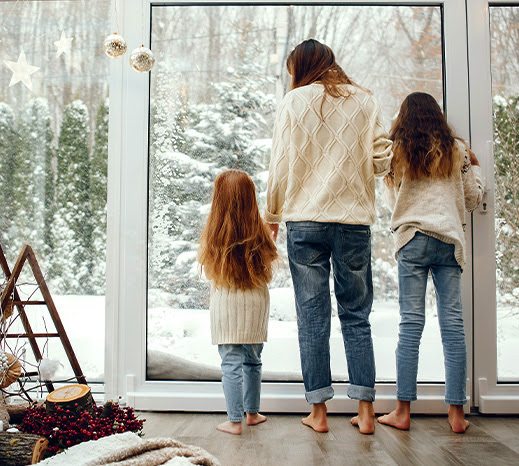Buying a high-efficiency heat pump in 2023 lets you heat and cool your home effectively throughout the year. Learn all you need to know about buying one here, including information on how much heat pumps cost, what kind of maintenance they need, and how much money they can save you each year.

Heat pumps can make staying comfortable throughout Nebraska’s changing seasons much easier and more cost-effective—since they provide heating and cooling capabilities in a single unit. But getting an efficient heat pump means buying one that’s the right size for your home and taking care of it with proper maintenance—so where should you begin?
We’ve installed, repaired, and serviced heat pumps throughout Lincoln, NE—so we know all about what to consider when buying one. Keep reading to find out how heat pumps work, how to buy one that will fit your home, what it will cost, and more.
See Also:
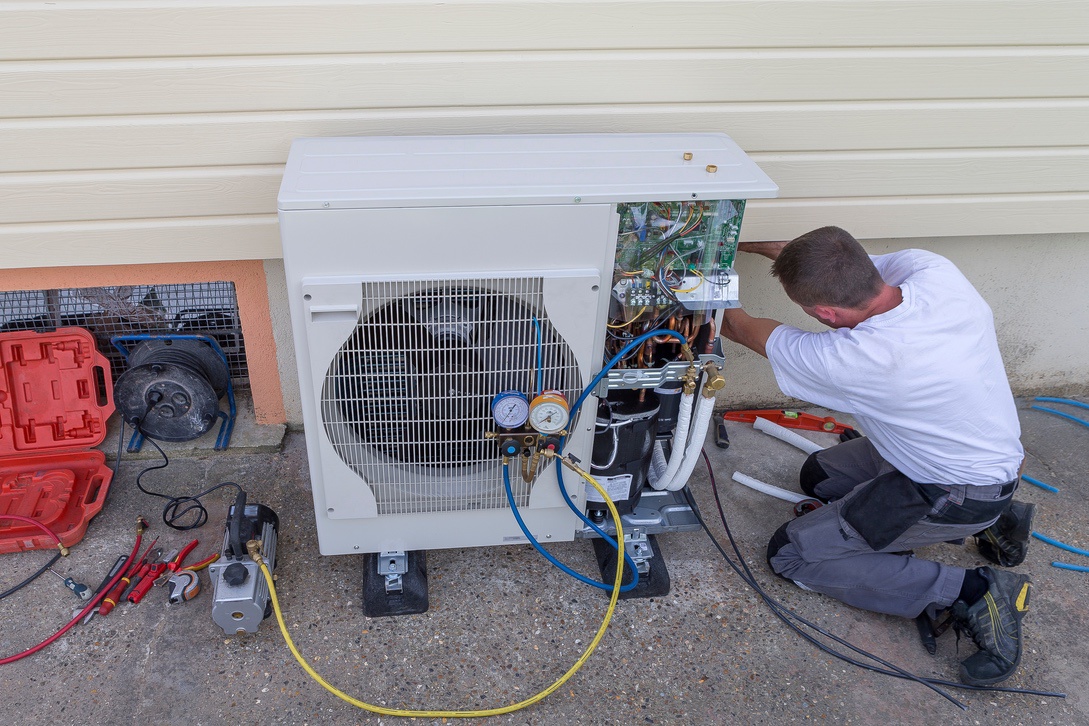
How Does a Heat Pump Work?
Like air conditioners, heat pumps use refrigerant to absorb heat from one area and move it to another location where it can be released.
How the Refrigerant Cycle Works:
- Refrigerant starts out as a gas with low pressure
- When refrigerant enters the compressor, it gets squeezed. As pressure is added, the refrigerant absorbs heat (cooling the air around it)
- Refrigerant moves to the condenser, which releases its heat and converts it to a high-pressure liquid
- The liquid refrigerant moves into the expansion valve, which lowers the pressure and releases even more heat
- The refrigerant is now a cool liquid—when it moves to the evaporator, it absorbs heat from the air again to become a low-pressure gas once more
- The refrigerant re-enters the compressor to start the cycle again
While air conditioners can only absorb heat from the air inside your home and transfer it outside, heat pumps are also designed to absorb heat from outside and move it indoors. Since moving heat uses much less energy than producing it, heat pumps can be extremely efficient, transferring three to four times as much energy in the form of heat than they use in electricity.
What to Consider When Buying a Heat Pump
Investing in a heat pump can be an excellent way to cut down on expenses while keeping your home comfortable, since they’re energy efficient and there’s only one unit to maintain instead of two. But getting the right heat pump for your home means considering a few key factors:
Sizing Your Heat Pump
Just like furnaces and air conditioners, heat pumps have to be sized appropriately for the space you need to heat and cool. Size refers to your heat pump’s heating and cooling capacity, which is measured in BTU (British Thermal Units).
However, BTU is just one indicator of how easily a heat pump can heat or cool your home. Accurately sizing a heat pump is a complex process that must also account for:
- The square footage of the area in your home that needs heating and cooling
- Your home’s R-value (which refers to its insulation, or how easily heat can enter and leave)
- The height of your home’s ceilings
- The number of windows and doors in your home
- … and more
Since sizing a heat pump is such a delicate process, it should always be done by one of our professionals. When you ask Star City to install your heat pump, your technician will perform a load calculation called the Manual-J to determine your home’s precise heating and cooling needs and recommend a heat pump that fits.
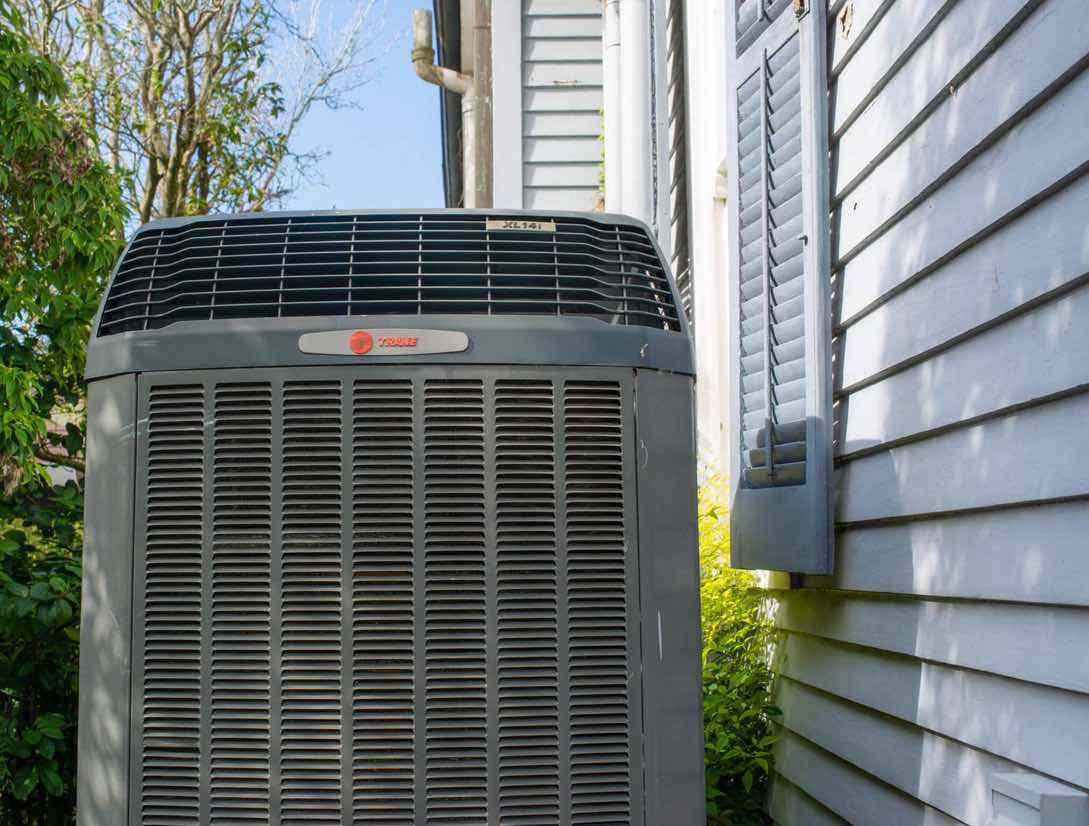
Frequently Asked Questions about Buying Heat Pumps in Nebraska
Will a Heat Pump Provide Enough Heat During Nebraska’s Winters?
While older heat pumps did not always function effectively in extremely cold weather, modern high-efficiency heat pumps can provide plenty of heat—even during the coldest Nebraska winters. Our heat pumps are designed with improved compressors and coils, and use stronger motors to move air through your ducts so that warm air can circulate better in the cold.
What Kinds of Heat Pumps Are There?
- Air-source heat pumps: these heat pumps extract heat from the air outside and use it to heat indoor spaces. Most of the heat pumps we sell are high-efficiency air-source heat pumps that provide satisfactory heating and cooling in every season.
- Ground-source (or geothermal) heat pumps: these heat pumps draw heat from the ground and transfer it indoors. They are typically more expensive than air-source heat pumps.
- Water-source heat pumps: these heat pumps move heat from bodies of water to heat indoor spaces. They are extremely energy efficient but only an option for homeowners who live near lakes, rivers, or the coast.
- Hybrid heat pumps: these heat pumps combine the efficiency of an air-source heat pump with the power of a gas furnace—using gas to supplement the heat pump if the weather ever gets too cold to transfer heat indoors efficiently.
- Ductless mini-split heat pumps: these heat pumps provide individual heating and cooling to specific areas or rooms, without the need for ductwork.
How Much Do Heat Pumps Cost in 2023?
The cost of your new heat pump will depend on:
- It’s size (in BTU)
- How accessible the installation area is (hard-to-reach places can drive up our time and labor costs)
- Whether your ductwork needs to be upgraded to accommodate your new heat pump
- Extra features such as variable-state compressors and backup heating sources (like natural gas for hybrid heat pumps)
How Long Does Installing a Heat Pump Take?
Installing a heat pump can generally be done in less than one business day, but every home is different. We’ll give you a timeline for your installation when you buy your new heat pump from us, based on factors like:
- The type and size of heat pump we’re installing
- The condition of your ductwork
- The labor required to access the installation location
We always do our best to provide accurate information on how long installations will take. If we encounter any factors that will increase the length of time required to install your heat pump, we’ll tell you ASAP so you can plan ahead.
How Long Will My Heat Pump Last?
On average, heat pumps should last from 10 to 15 years—although they can last up to or over 20 years with proper care. Always make sure your heat pump is serviced by licensed HVAC professionals and follow the recommendations in your owner’s manual to help it last as long as possible.
What Maintenance Do Heat Pumps Need?
There are a few things you can do by yourself to keep your heat pump healthy. These include:
- Cleaning or replacing your air filters on a monthly basis (depending on whether they’re disposable or reusable)
- Keeping your outdoor unit clean by clearing away debris and vegetation
- Checking and cleaning the condensate drain
- Checking your thermostat to make sure it has power and is set to the right temperature
You should also arrange for annual professional heating tune-ups—usually during the fall, before cold weather arrives. Our heating tune-ups include:
- Checking all gas & electrical connections
- Testing your blower’s performance
- Lubricating all moving parts
- Checking and cleaning your heat pump’s coils
- Running temperature performance diagnostics
- Calibrating your thermostat controls
- Checking your fan switch & belt
- A comprehensive multi-point safety inspection
What Are the Signs My Heat Pump Needs Service?
Signs your air conditioner might need professional service include:
- Uneven heating or cooling
- Temperature problems
- Unusual noises or smells coming from the unit
- Poor airflow
- Energy bills that steadily increase (despite no change in usage)
- Turning on and off rapidly (cycling)
- Ice buildup on the outdoor unit
- Inconsistent thermostat readings
If you’re experiencing any of these issues, give us a call right away so that we can diagnose the issue before it becomes worse (and potentially more expensive to fix).
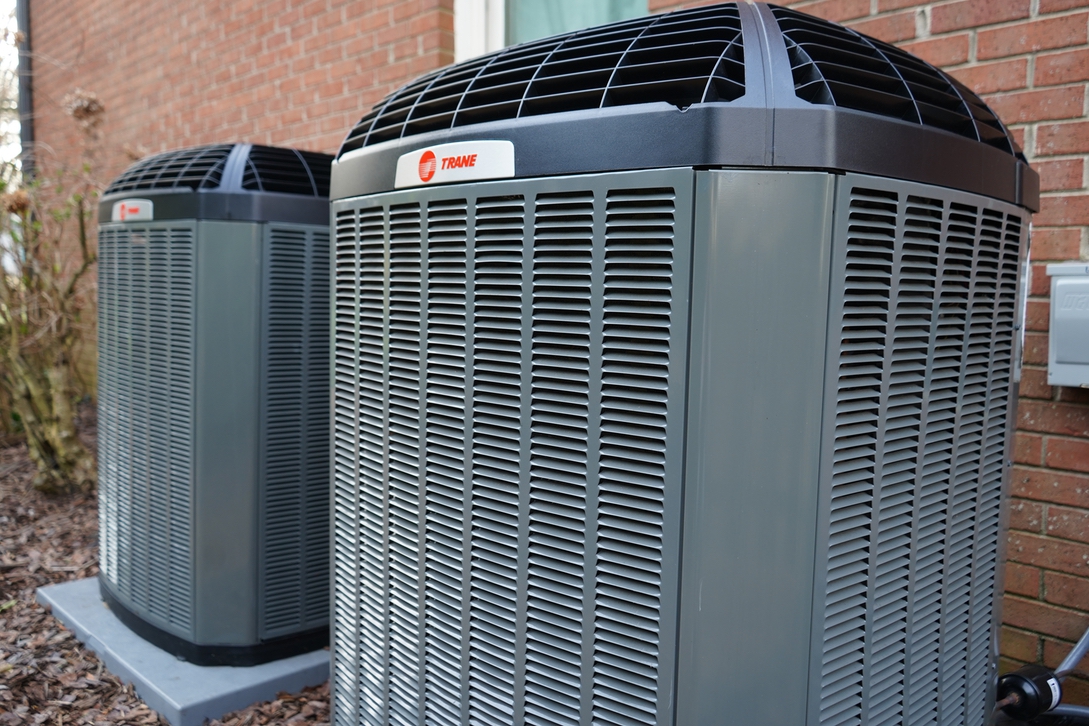
Making the Most of Your Heat Pump in Nebraska
Understanding how heat pumps work, why they’re more efficient than older heating and cooling equipment, and the factors that go into correctly sizing one for your home will help you purchase a unit you can count on for year-round comfort during Nebraska’s warm summers and chilly winters. Get recommendations on heat pumps that will work for your specific comfort needs by contacting Star City Heating & Cooling. We’ll help you choose the best model for your home, provide you with a quote, and answer any additional questions you have.
